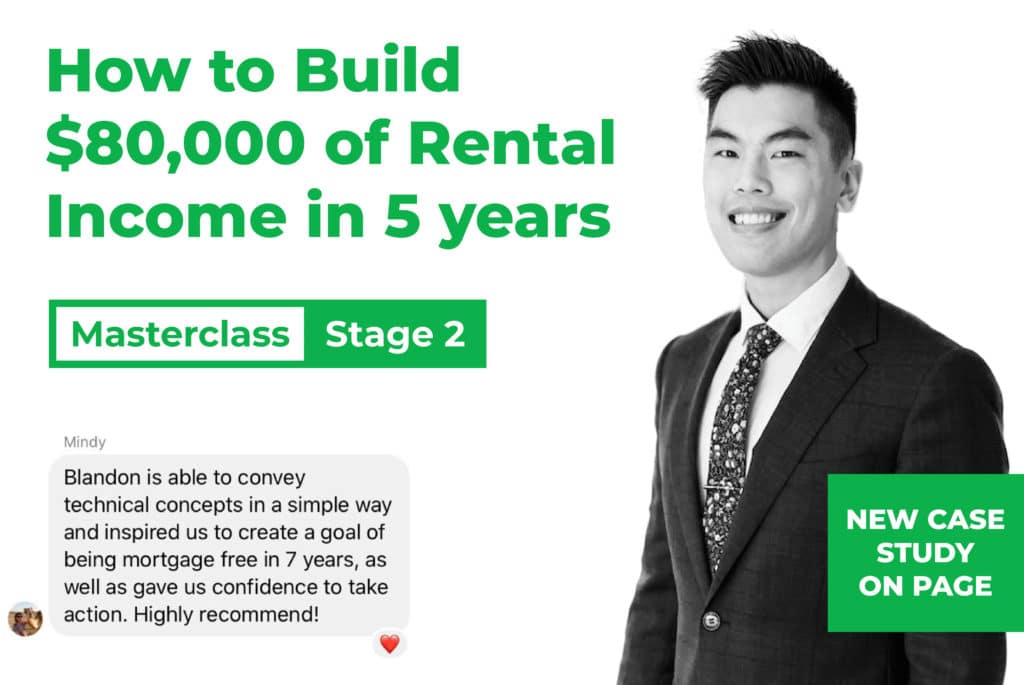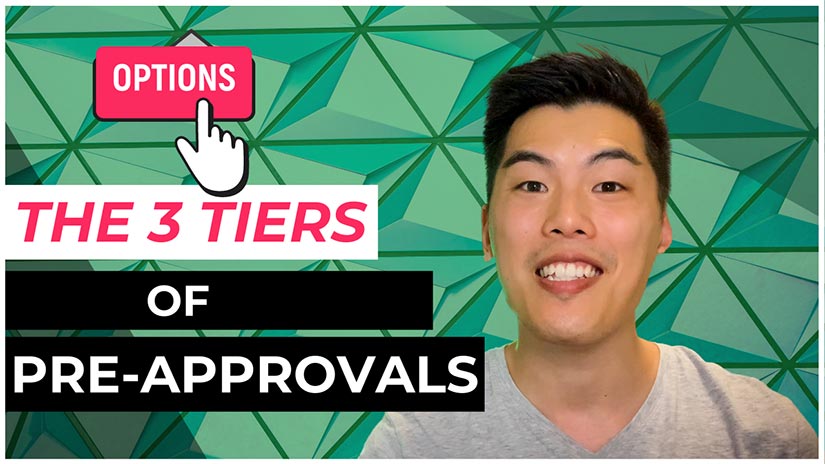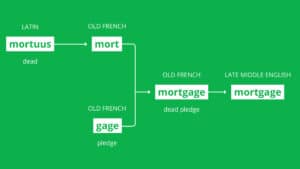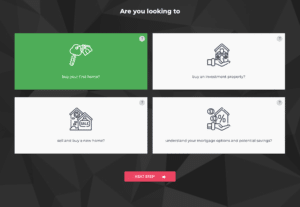You might be thinking about making an offer or going to an auction on a particular property that you’ve been running the numbers and wondering how much you can afford for a mortgage. [Godfather voice] “I’m going to make him an offer he can’t refuse.” But the trouble is the bank is taking a little bit of time to come back to you, or you’re still waiting for your pre approval, so you’re not too sure whether or not you should get a pre approval. This is where a mortgage advisor can make a huge difference. Now, the misconception is that they might come in and just speed up that pre approval.
Sometimes, a mortgage advisor can arrange your application a lot better than if you did it yourself, but more often than not, it’s about the options of the lenders that a mortgage advisor can give you. Because if you’re just dealing with one bank, it’s just a yes or no, and you don’t have many other options if they did say no. Many of the banks are so busy at the moment that they will only look at existing client applications, so if you are new to the bank, they will not help.
However, a mortgage advisor has more than 20 lenders as options for buyers depending on which advisory you might be dealing with. So, in this video, I’m going to share three tiers of pre approvals you can get as a buyer so that you can make a more informed decision when it comes to purchasing your next home and maybe you can make a decision a lot sooner.
Now, if you stay tuned in, I’m going to share one situation that you might not even need to worry about a pre approval at all. And as always, if you find value and enjoy the information in this video, remember to smash that like button for our YouTube algorithm. So, the three tiers of bank approvals you can get. Think of a pyramid, and there are three tiers. At the very top, this is where the main banks are.
These are the big four banks, like ASB, ANZ, Westpac. They often give you the lowest interest rate because they’re the most risk-averse banks. So, more often than not, they have to stick by their policy. Most credit decisions are just automated. You know, they plug all the numbers in, and then, the machine spits out an answer.
So, remember, lowest interest rate, but the least flexible in terms of policies, meaning they’re more strict and more black and white. There are three things that the main banks look for. Number 1 is income. They often stress-test the situation on a slightly higher interest rate just to see if, in the worst-case scenario, interest rate were to double, can this client still afford the lending that they’re giving out?
The second is the deposit. Now, for a first-time buyer, you might just get away with a 10% deposit. In the 10% scenario, you probably want a slightly higher income to show the bank to compensate for that extra risk that they’re taking on board. Now, if you have a 20% deposit, you can use things like board income to borrow just a little bit more.
You also get special interest rates and you get a lot more cashback from the bank as well. The third most important thing that the main bank will look for is your track record, track record and your credit history, whether or not you have had any adverse credit through late repayments or default. Income and job stability history is very important as well. So, if you just started a job, they might quiz you a little bit more, credit might not be as lenient in your application, they might lend you a little bit less.
And if you are self-employed, you might want to have a longer history before you go to the main bank. Now, the second tier in the pyramid is the non-bank lenders. They’re still a bank where they will assess your income and your deposit. However, applications that are slightly less than perfect can still get through in non-bank lenders.
And for the extra risk that they take, they charge you a high-interest rate, often 1% to 3% higher than the main banks. Perhaps you’re a small business and you don’t have a strong track record just yet, but you started making a good profit in the last 6 or 12 months, you could go to a non-bank lender and they will consider that situation.
Or perhaps you have a slightly impaired credit history, for example, arrears or defaults, and as long as you can show the non-bank lender that these situations are not going to happen again, more often than not, they will consider the application. So, they’re a lot more flexible than the main banks and more often than not, because the stress test levels are lower than the main banks, they might just lend you $100,000 to $200,000 more.
So, it’s very good if you found that dream home or just a really, really good investment property in general and you just need that slight extra lending, then a non-bank lender could be a good option because even though you pay a slightly higher interest rate, that is all tax-deductible, and when your situation is better, you can refinance back to the main bank. Now, at the bottom tier of our pyramid are the second-tier lenders.
Again, 1% to 3% higher than the non-bank lenders, so almost triple what the main bank would charge. So, if you run out of servicing, this might be the choice for you because the second tier lenders often do not account for the income that is coming in, what they want to know is the exit strategy because they’re a short-term lender, they might lend you for 6 to 12 months and they want you to go back to a non-bank or main bank in the future.
Now, because they don’t consider income in the application, the deposit becomes the most important thing, and more often than not, they just want you to have a bit more skin in the game. Now, you might not need a deposit, as long as you’ve got some equity in another property works as well. So, the second-tier lender works well for traders, an absolute amazing own/occupy that you want to bridge for, or just this amazing deal that you just cannot pass and you don’t mind paying certainly higher interest rate because you’re buying that property $100,000, $200,000 discount.
So, there’s one situation that you probably need to worry about a pre approval less because it might not be as meaningful. If you’re working with an experienced mortgage advisor, they should be able to tell you where your application might face some challenges and which tier of banking you should fit into. Now, of course, if you’re trying to stretch yourself on the borrowing amount and your deposit is quite short, then I would encourage you to get a pre approval.
But if you have assessed your situation with a mortgage advisor and you’re staying well within your borrowing power and your deposit level is more than the 20% mark, more often than not, you can go in confidence as long as the legal side checks out and you’ve done your due diligence, like building rapport. The pre approval is less meaningful here because if you stay within those limits, the pre approval is just a piece of paper that just says, hey, this is how much you can borrow.
But an experienced mortgage advisor will be able to tell you whether or not you’re within those limits anyway. But I’d still always encourage you to seek advice from a mortgage advisor. And if you want to know what your borrowing power is or how much your deposit can get you, then you could try the Mortgage Snapshot at mhq.co.nz that is on our homepage.
The Mortgage Snapshot (advanced mortgage calculator) takes 90 seconds to fill out, and it’s instantly going to tell you what your borrowing capacity is and what your deposit level is going to allow you to borrow, and then, if you want to explore this option a little bit deeper, you can book a call with a mortgage advisor on our team.
If you guys have any questions, check in the comments below, and if it’s a big topic, I might just cover it in another video, but until next time, I’ll see you guys in the next video.













